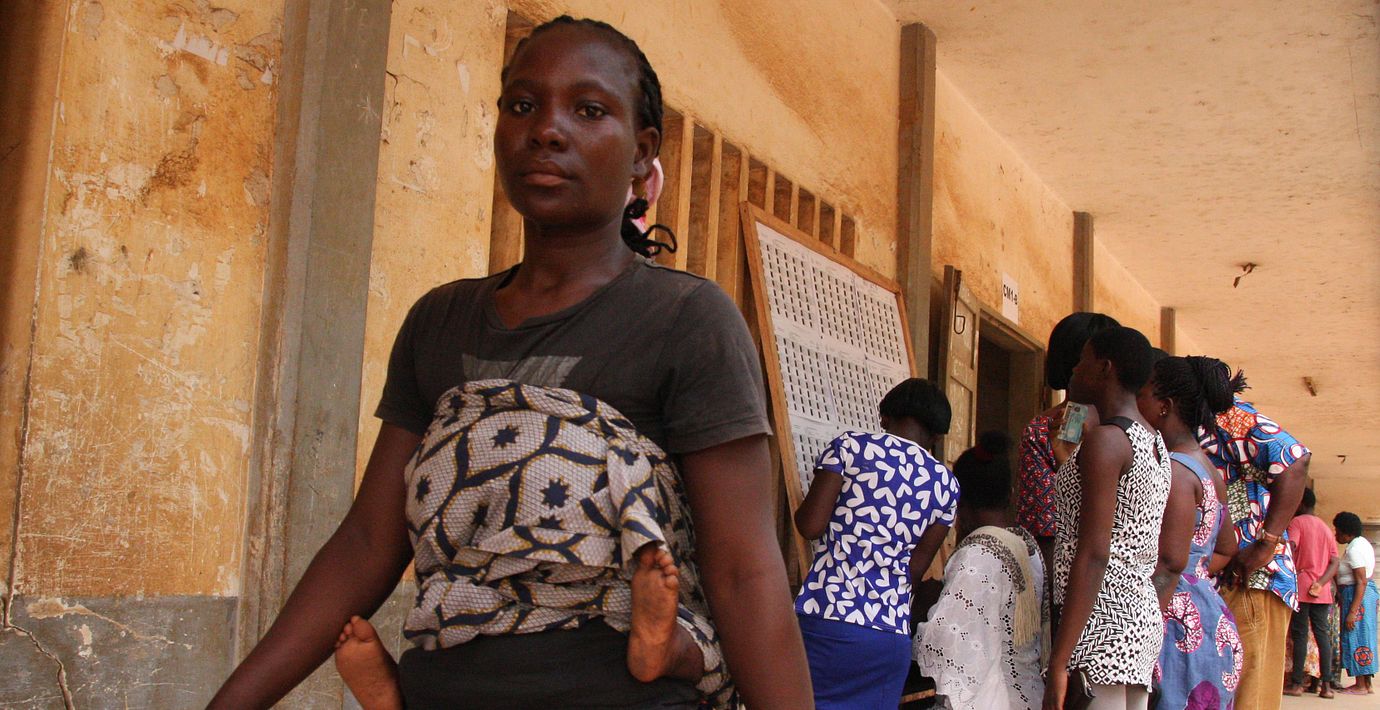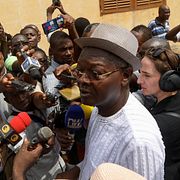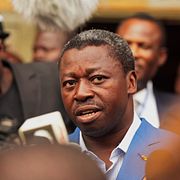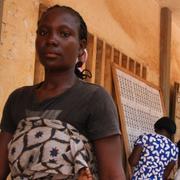
Protesterna har tystnat i Togo: Jordskredsseger spås
Det västafrikanska landet Togo skakades av protester för två år sedan då demonstranter krävde att sittande presidenten Faure Gnassingbé skulle hedra konstitutionen och avgå istället för att få till en ändring som gjorde att han kunde sitta kvar. Så blev det inte, parlamentet godkände lagändringen som gör att Gnassingbé, som styrt landet sedan 2005, kan ställa upp både i 2020 och 2025 års val.
Under presidentvalet som hålls nästa månad i Togo väntas Gnassingbé vinna stort. Regeringen har lyckats slå ned motståndet som krävde en förändring i landet, skriver AFP. Ett dussintal oppositionspolitiker har sagt att de kommer ställa upp i presidentvalet, bland dem veteranen och oppositionsledaren Jean-Pierre Fabre.
bakgrund
Protesterna i Togo
Wikipedia (en)
The 2017–18 Togolese protests are a significant representation of civil unrest in Togo and against the 50 year rule of the father-son combination of Gnassingbé Eyadéma and Faure Gnassingbé. The protesters demanded that the president honour the 1992 constitution, and demanding that he step down immediately. Gnassingbé offered the protesters the option of enacting the two-term limit set in the constitution effective from 2018, thus ensuring that he could stay in power until 2030. This has been rejected by the opposition. As the protests continued, the opposition started focusing more on protesting Gnassingbé's rule.Starting in August 2017, the opposition has held protests on a near-weekly basis. The scale of the protests have been enormous, with some estimates claiming 800,000 present at one protest in a country of 6.6 million. The demonstrations are also taking place all over the country, even in the north, the traditional power base for the Gnassingbé family. The Togolese government has responded to these protests by shutting down the internet, or block various apps, such as WhatsApp. The protesters have utilised social media, using the hashtag #togodebut for publicity. The protests and police response have resulted in the deaths of at least 16 people, including two soldiers. As of August 2018, Gnassingbé has offered some concessions to the opposition, but has held onto power due to his crackdown on activists.
bakgrund
Jean-Pierre Fabre
Wikipedia (en)
Jean-Pierre Fabre (born 2 June 1952) is a Togolese politician and the President of Togo's main opposition party, the National Alliance for Change (Alliance Nationale pour le Changement, ANC). He served for years as Secretary-General of the Union of the Forces of Change (UFC), and he was President of the UFC Parliamentary Group in the National Assembly from 2007 to 10 August 2010. He stood as the main opposition presidential candidate in 2010 and again in 2015.
When the UFC was founded in 1992, under Gilchrist Olympio, Fabre was designated as its Secretary-General. When Olympio was unable to run in 2010 election due to medical issues, Fabre was chosen as the UFC candidate for the March 2010 presidential election. According to official figures, he lost to President Faure Gnassingbe by a wide margin.In May 2010, a power sharing agreement was signed by the ruling party and Olympio's party. Opponents of the deal and hardliners within the UFC, led by Jean-Pierre Fabre, left the party to create their own. A brand new party was created, the National Alliance for Change, with Fabre as President. In the 2013 legislative election, Fabre's ANC emerged as the main opposition party when its coalition (Sauvons le Togo) won 19 seats in the National Assembly. Fabre again ran as the main opposition candidate in the April 2015 presidential election and lost again to Gnassingbe. On 29 April 2015, Fabre rejected the official results of the election and proclaimed himself the elected president, alleging massive fraud by the ruling party.
Omni är politiskt obundna och oberoende. Vi strävar efter att ge fler perspektiv på nyheterna. Har du frågor eller synpunkter kring vår rapportering? Kontakta redaktionen


